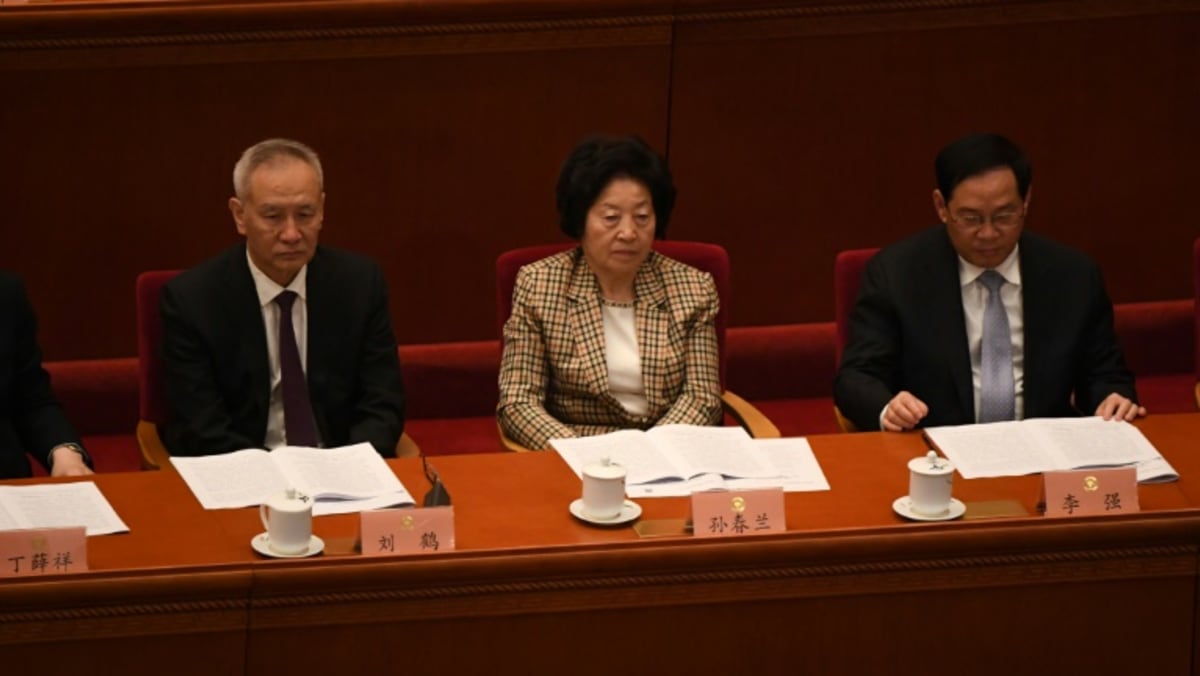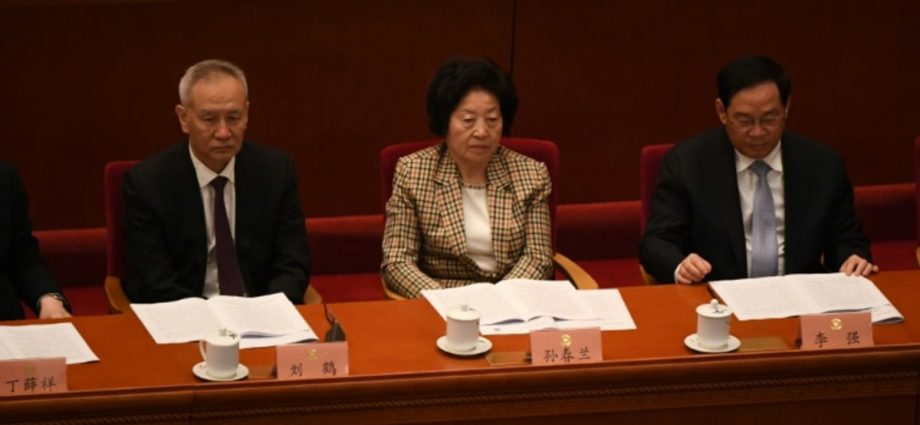
BEIJING: The Communist Party Congress has laid bare the striking gender imbalance in the upper echelons of Chinese politics, with not a single woman making the 24-person Politburo for the first time in at least a quarter of a century.
As Xi Jinping and his allies concentrated power over the weekend, the party’s highest-ranking woman leader retired.
Veteran politician Sun Chunlan, a vice premier overseeing China’s health policies, was absent from the Central Committee list published Saturday, meaning she has stepped down.
In the world’s biggest political party – which counts 96 million active members – women have never held much power, and now hold even less.
They make up just 5 per cent of the party’s new 205-member Central Committee, while the seven-member Standing Committee – the apex of China’s power – remains an all-male club headed by Xi.
Sun, 72, was the only woman in the former Politburo, the party’s executive decision-making body.
Often dispatched to inspect Chinese cities in the grip of surging Covid-19 outbreaks, the former party chief of Fujian province and Tianjin municipality became the public face of the zero-COVID policy, commanding tough measures wherever she went, prompting the nickname “Iron Lady”.
But figures like Sun are a rarity in Chinese politics, where male patronage networks and ingrained sexism have stymied the careers of promising candidates, experts say.
It is a far cry from Communist Party forefather Mao Zedong’s pledge that “women hold up half the sky”.
“The Chinese Communist Party’s commitment to women’s rights I think is more like a commitment to advance women’s economic rights,” said Minglu Chen, a senior lecturer at the University of Sydney.
“It’s really about: ‘Women should join the paid labour force’.”
Chen added that the Communist Party is by nature a masculine and patriarchal institution, from its roots as a social movement to today.

